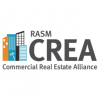Reverse Mortgages, a Primer by Steven Greenberg
Reverse Mortgages – A Primer
By Steven R. Greenberg
A “reverse” mortgage is a loan against the borrower’s home that does not need to be paid back as long as the borrower lives there. There are several ways to get the cash out of a home with a reverse mortgage:
1. As a regular monthly advance;
2. All at once, in a single lump sum of cash; or
3. As a combination of these payment methods.
In order to qualify for a reverse mortgage, the borrower must be at least 62 years of age. Furthermore, the borrower must seek third party financial counseling from a source approved by the Department of Housing and Urban Development (HUD) in order to ensure that the borrower completely understands what a reverse mortgage is and how one is obtained. After the counseling session, the borrower receives the required “certificate of completion”.
There are no restrictions on how the funds from a reverse mortgage may be utilized. The borrower has the option of moving the entire amount of money into investments, or the borrower can simply take the money and spend it as they desire.
The amount of money available to the borrower is determined by several factors:
• The appraised value of the property;
• The interest rate;
• The age of the borrower;
• Whether the payment is taken as a lump sum, line of credit, or monthly payments; and
• The location of the property, and whether the maximum loan amount is subject to the maximum loan limits.
Generally speaking, the costs of obtaining a reverse mortgage loan are higher than a conventional mortgage loan. Some reverse mortgage loans require a 2% insurance premium and a 2% origination fee in addition to the standard closing costs. Other programs may waive the insurance premium. However, most reverse mortgage programs allow the borrower to finance the costs of the reverse mortgage loan.
Initially, reverse mortgage loans were available only with adjustable rates. Several lenders now offer reverse mortgage loans with fixed rates. Interest rates on reverse mortgage loans are determined on a program-by-program basis.
A reverse mortgage loan works in reverse of a conventional mortgage loan. In a conventional mortgage loan, the entire amount of the loan is given at the time the loan is made. The mortgage loan is paid back over time usually on a monthly basis. As the loan is paid back, the amount owed becomes less while the borrower’s equity in the property increases. However, with a reverse mortgage loan, the borrower is taking the equity out in cash. Accordingly, the debt increases and the home equity decreases. The lender provides the borrower with cash and the borrower makes no repayments. When the reverse mortgage loan becomes due and payable, the borrower may owe a significant amount of money and there may be little or no equity in the property.
The loan ends when the borrower dies, sells the property, or moves out of the property for 12 consecutive months. The reverse mortgage loan is paid off from the proceeds of the sale of the property or by a refinance of the loan with a conventional mortgage. If the proceeds are not sufficient to pay off the loan, then the bank absorbs the difference. As long as the borrower (or his/her estate) is attempting to sell the property or refinance the loan, the investor will probably allow the borrower up to one year to complete the sale or refinance.
Of particular concern to REALTORS® is the use o reverse mortgage loans in connection with the purchase of property. According to the Federal Hosing Administration (FHA):
“The FHA defines “Home Equity Conversion Mortgages (HECM) for Purchase” as a real estate purchase where title to the property is transferred to the HECM mortgagor, which the mortgagor will occupy as a principal residence, and, at the time of closing, the HECM first and second liens will be the only liens against the property. HECM mortgagors must occupy the property within 60 days from the date of closing. Lenders are required to ensure all outstanding or unpaid obligations incurred by the prospective mortgagor, in connection with the HECM transaction, are satisfied at closing.”
This article is intended to be an overview of reverse mortgage loans. A qualified mortgage loan officer should be consulted for more information on reverse loan programs.
BIO
Steven R. Greenberg has practiced Real Estate law in Sarasota since 1986 and is a shareholder in the law firm of Icard, Merrill, Cullis, Timm, Furen & Ginsburg, P.A. He is board certified by the Florida Bar in real property law and frequently lectures on matters involving real estate transactions. Steven may be reached at (941) 365-6216 or by calling Linda Witt, Director of Marketing, directly at (941) 586-4412 www.stevenrgreenberg.com
Tags: Legal


























 Twitter
Twitter LinkedIn
LinkedIn Facebook
Facebook Youtube
Youtube RSS
RSS